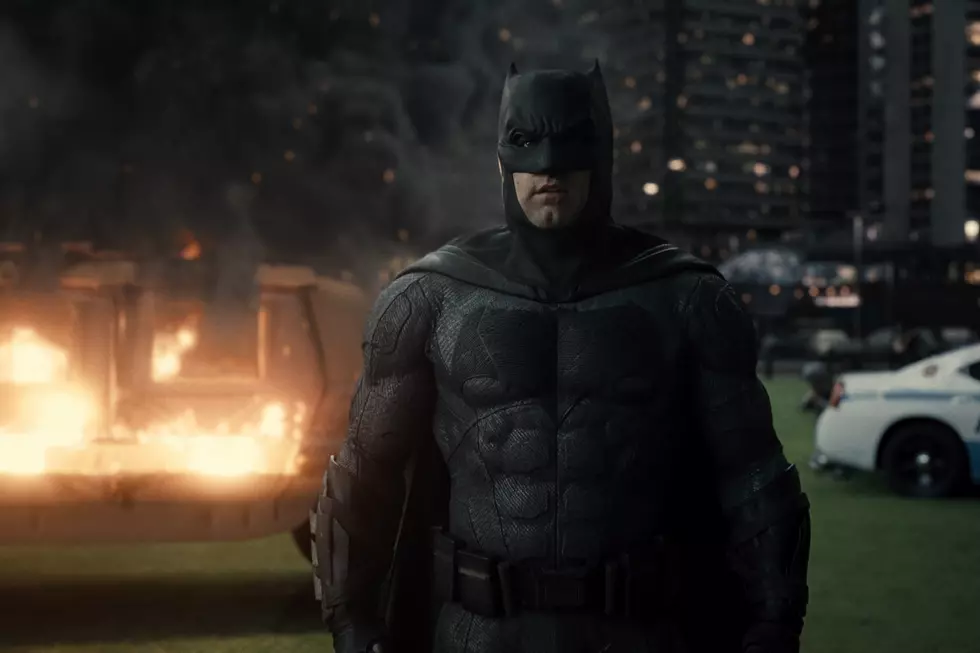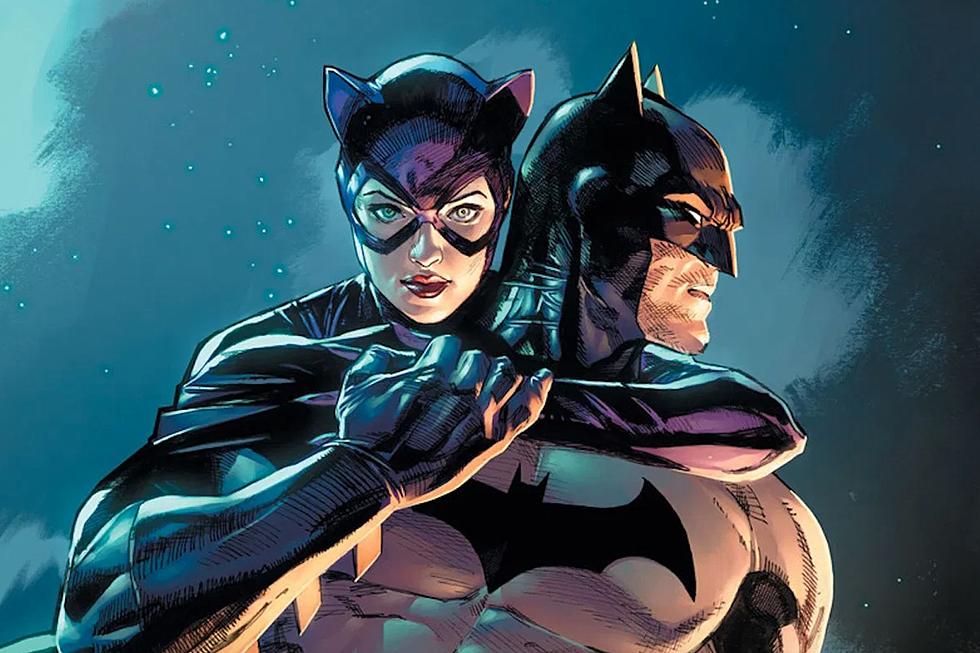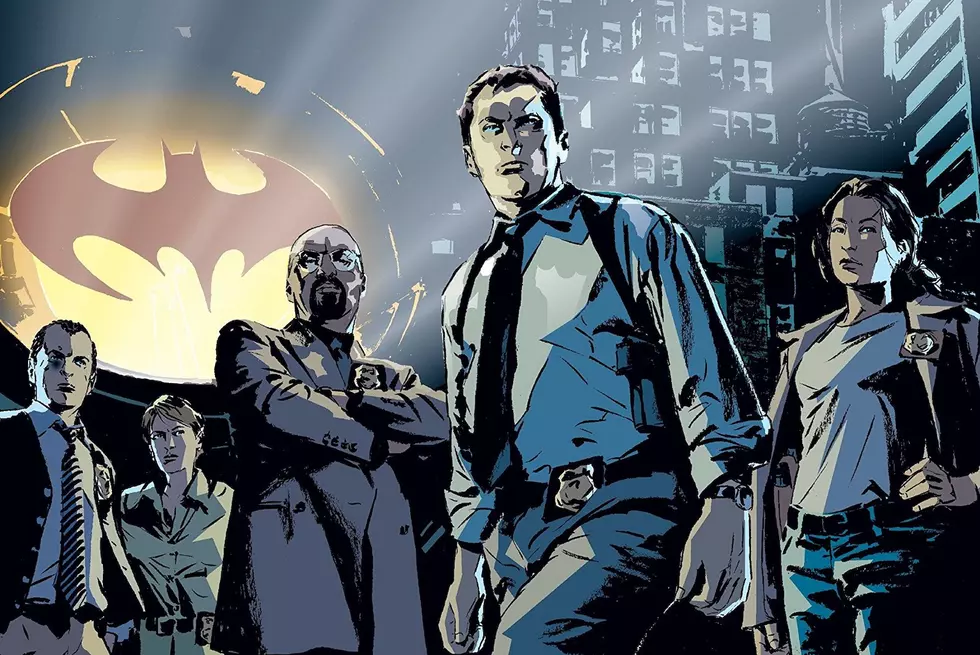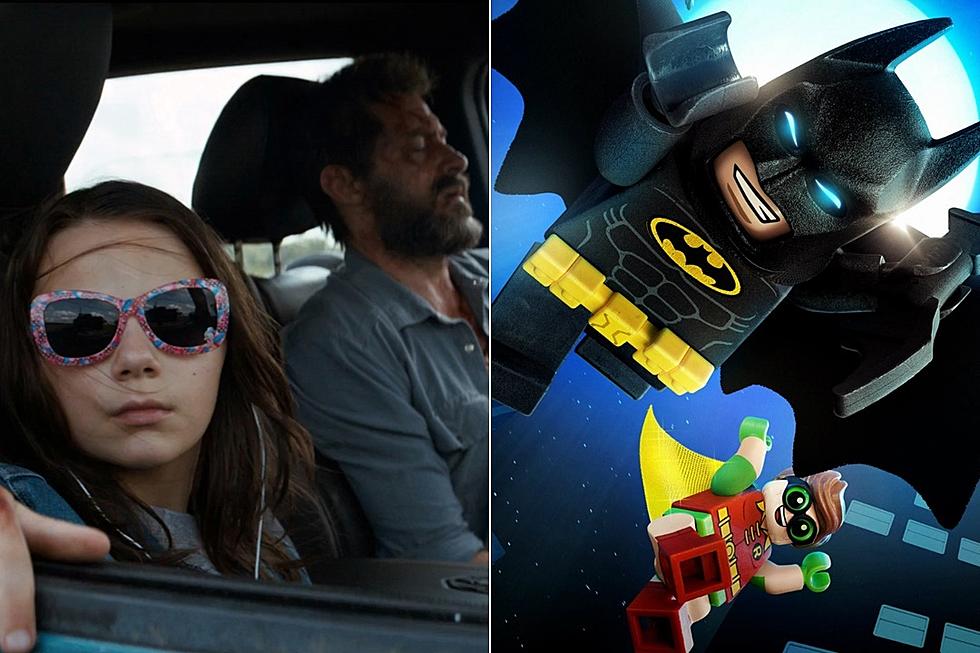
Ask Chris #288: The Boy Wonder
Q: Beyond the whole "kid's POV" character thing, why do we love Robin so much? We should be horrified by his existence. -- @TheDwightSteel
A: All right, first of all, if you're going to be horrified by the kind of child endangerment that's necessary for Batman to take a kid sidekick along to fight murder clowns and crossword robberies, then I have some bad news for you about pretty much every other adventure story that involves children. The sheer number of criminal charges over Scrooge McDuck's dubious employment of his nephews would keep Duckburg's courts busy for a decade, and Hogwarts? That place is a deathtrap just based on the idea of sending ten year-olds onto staircases that move of their own volition, let alone the part where they've got magic death snake hiding in the plumbing. And if we ever get around to Pokémon, well... You're probably going to want to sit down for that one.
But really, that danger ends up being a pretty big part of what makes Robin work, although there's a little more to it than that.
I do think you're right about Robin's major appeal being drawn from the fact that he's a kid, though. As much as kids look up to superheroes and imagine themselves in the roles, it's a lot easier to project yourself onto someone who's a little more like you. Batman might be what you imagine you'll be like when you're older, but Robin is something you can be right now, and that counts for a lot.
It did for me, anyway --- I've mentioned this before, but when I was a kid, I never pretended to be Batman. For me, it was always Robin, although I will concede that it might've had something to do with the fact that the rubber gloves we had for washing the dishes were green, and I never managed to find any in blue.
This, incidentally, is one of the many things that made Captain Marvel --- you know, the guy who says "Shazam!" --- such a great idea. He's a kid whose magic word turns him into an adult, and for the young people reading that book who know that the adults are the ones who make the rules, determine bedtimes, and can reach the cookies on the highest shelves, that's a fantasy that has an incredible appeal. Admittedly, it's an appeal that wears off just a little bit once you find out about taxes and anxiety, but if you have to be an adult --- and most of us do, eventually --- you might as well be an adult who has Superman's powers and hangs out with a talking tiger.
But getting back to Robin, there's another aspect of that youth appeal that goes far beyond just the simple idea of "he's a kid, just like you," and it all has to do with how he changes Batman as a character.
In The Caped Crusade, Glen Weldon goes as far as saying that Robin is the final, crucial element that allows Batman to become Batman, making the transition from being just another pulp-inspired vigilante ripoff to being a character in his own right who helped to define the superhero genre, and he's not wrong. Robin's arrival, which comes only a year after Batman himself made his debut, fundamentally changes the character.
On a purely mechanical level, it gives him someone to talk to, which is something that you need if you're going to be telling a detective story --- even one that's using a definition of "detective" that's so liberal that it includes solving crimes by punching out the Penguin. You have to have someone that can be walked through the process, and when the Sidekick is just as invested in the action as the Detective, that makes for a much more interesting story. Think about different portrayals of Sherlock Holmes and John (or Joan, if you prefer) Watson. You're always going to be more invested in them as characters if they're both involved in what's going on.
And because he's a kid sidekick --- because he defines the idea of the kid sidekick --- the dynamic between Batman and Robin naturally falls into an idealized version of father and son. And that, in turn, introduces and reinforces the idea of family that, one way or another, sits at the core of everything that Batman is.
You can see a change on a visual level, too. Batman by himself can be darker, he can blend into the shadows and have those terse conversations with Jim Gordon on the rooftop, but when you introduce Robin, all of that changes. And I mean that literally --- when you draw him on the page, it changes the layout, and it forces Batman to be positioned and moved in a different way, whether it's complimenting Robin and his bright red costume, or by contrasting against him by emphasizing that one of these characters sticks to the shadows while the other --- if you really want to be cynical about it --- is out there making for a much easier target. Either way, you're emphasizing an aspect of the character that you can't do as effectively when he's alone.
More than that, though, Robin's existence shows that Batman works. This is something else that I've written about before, and it's the main reason that the premise you might think of as horrifying --- Vigilante Enlists Child Soldier In Night-Time "Crime-Fighting" Crusade --- actually ends up making everything better.
Batman is, after all, a pretty silly proposition, and if you're going to be able to buy into it, it helps if the world around him is built to support the idea that what he's doing isn't just an acceptable premise, but the right thing to do. Robin --- specifically Dick Grayson, although you can apply it to the other characters who have been in that role in the past --- proves that Batman's not just necessary, he's effective. Without Batman, Dick Grayson would, at best, have to become Batman himself, with the same all-consuming dedication to his mission. And at worst, he'd be dead.
If you put all of that together, though --- the youth, the dynamic presence on the page, the role as the kid sidekick, the way that he changes Batman in both purpose and relationship --- you get something that's a little more unique.
Because here's the thing: You should absolutely be horrified that Robin's out there fighting crime. That's what makes him work.
A hero is defined by the challenges they overcome. With Batman, there's only so much challenge that you can give to him while still preserving one of the core aspects of his character, which is that he's great at everything he does. That's the big gripe that people who don't like the character always bring up when they talk about Batman's unrealistic infallibility, how it kills stories because there's no tension. There's a little bit of truth to that, and I'll admit that for me, that's more of a feature than a bug, but consider how that changes when you add Robin into the formula.
If all of your challenges are built for someone who cannot be beaten, someone who's the smartest, toughest, richest superhero in the business, then what happens when you apply those same threats and challenges to someone who is, by his very nature as a sidekick, inferior? Someone who's less experienced, who isn't as big or strong, who doesn't have the advantage of a scary costume to tip the scales?
If Robin can not only exist in the face of those challenges --- even if he's part of a team, and even if he's the junior partner in every sense of the world --- then his triumphs are compelling instantly, even without all of those other elements that combine to make it such a great role.
That's why I love Robin, anyway. If you didn't have those green dishwashing gloves, though, I can see how the whole concept's going to be a much harder sell.
More From ComicsAlliance









